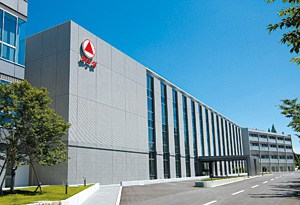 Takeda has reacted angrily to the news that NICE has rejected its lymphoma drug Adcetris – currently on the old Cancer Drugs Fund (CDF) list – in new draft guidance.
Takeda has reacted angrily to the news that NICE has rejected its lymphoma drug Adcetris – currently on the old Cancer Drugs Fund (CDF) list – in new draft guidance.
Adcetris (brentuximab vedotin) is listed on the CDF as a treatment for some people with Hodgkin’s lymphoma as well as refractory systemic anaplastic lymphoma, but had not yet been appraised by NICE.
Now the cost-effectiveness watchdog says that evidence for the drug’s efficacy in Hodgkin’s lymphoma is “immature and limited” and its £69,000-£87,000 price tag per patient course is not a good use of NHS resources. It is thought that around 50-60 people could benefit from Adcetris each year.
The preliminary verdict is part of a review of 31 treatments currently available on the CDF, which is in the throes of a major overhaul.
“We recognise that people with this type of Hodgkin’s lymphoma are difficult to treat, but there is not enough convincing evidence on brentuximab vedotin’s clinical and cost effectiveness to recommend its use,” said Prof Carole Longson, director of the Centre for Health Technology Evaluation at NICE.
Takeda said the decision means that patients in England will be denied a drug that has become the standard of care for relapsed or refractory Hodgkin’s lymphoma following a stem cell transplant and is routinely offered to people in Scotland and Wales.
“Brentuximab vedotin has been a game changer in the management of relapsed or refractory Hodgkin lymphoma and is the only licensed medicine in this setting,” commented Jon Neal, Takeda UK’s oncology business director.
“This is a rare disease that often affects young people and due to the high level of unmet need, brentuximab vedotin was granted a license on unprecedented phase II trial results. This poses a challenge to the NICE methodology which penalises the absence of phase III data which is often the case for rarer cancer medicines,” he added.
Takeda said it “stands firm that there is a clear, unmet need especially in high-risk patients who might not be eligible for a subsequent allogeneic transplant” and is encouraging patents and their doctors to comment on the draft guidance before the consultation period ends on 1 September.
Gives green light to Imlygic
Meanwhile, Amgen’s melanoma therapy Imlygic will be made available to NHS patients in England and Wales after a change of heart by NICE.
Imlygic (talimogene laherparepvec) was turned down by NICE in earlier guidance, with the agency arguing that it could not justify its use because of uncertainty about the therapy’s effects on survival compared to other melanoma drugs.
Now it says Amgen’s virus-based therapy can be used for patients who cannot be treated surgically for advanced melanoma, provided that treatment with systemic immunotherapies is not suitable and the company provides it at a discount agreed in the patient access scheme.




